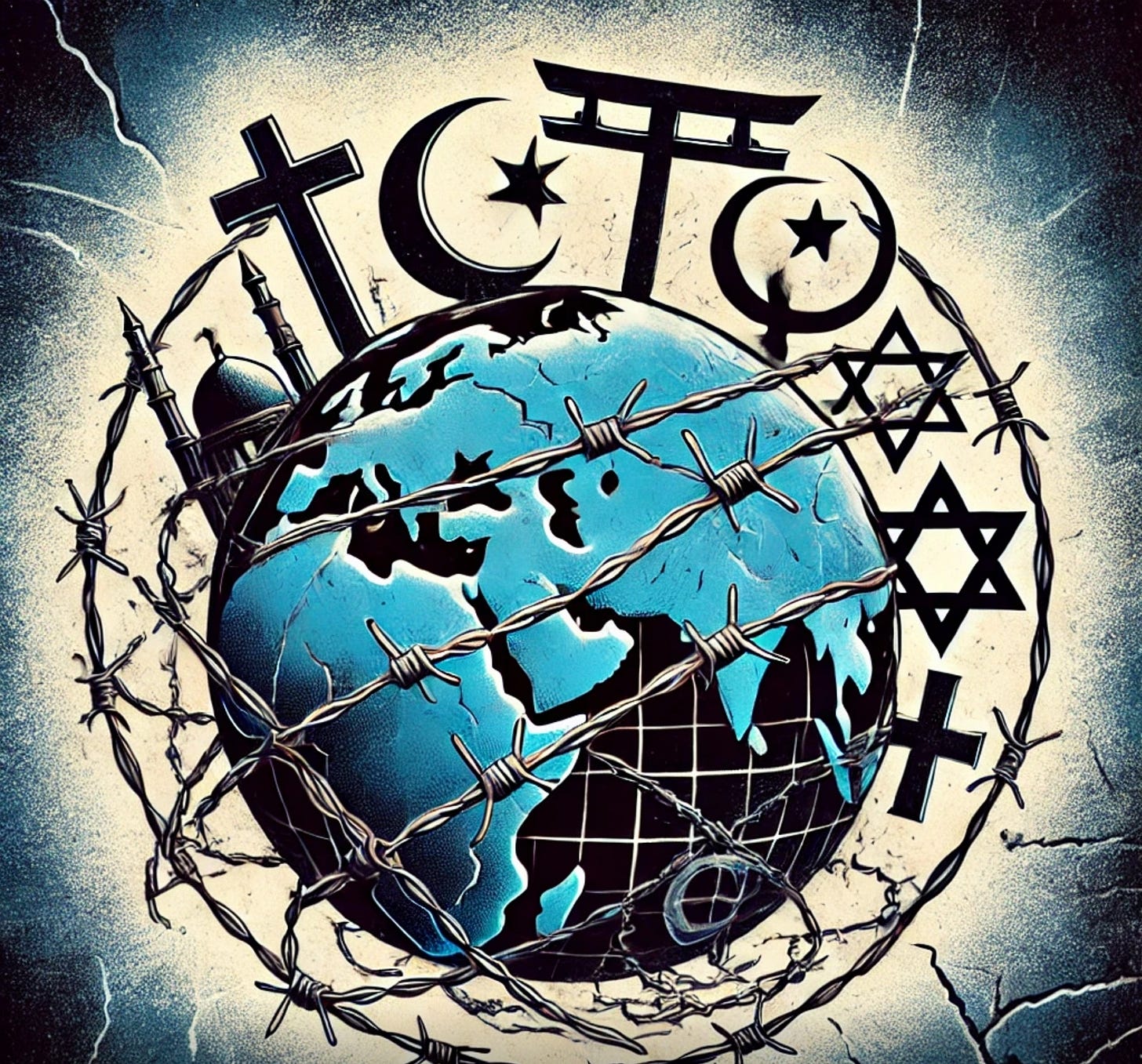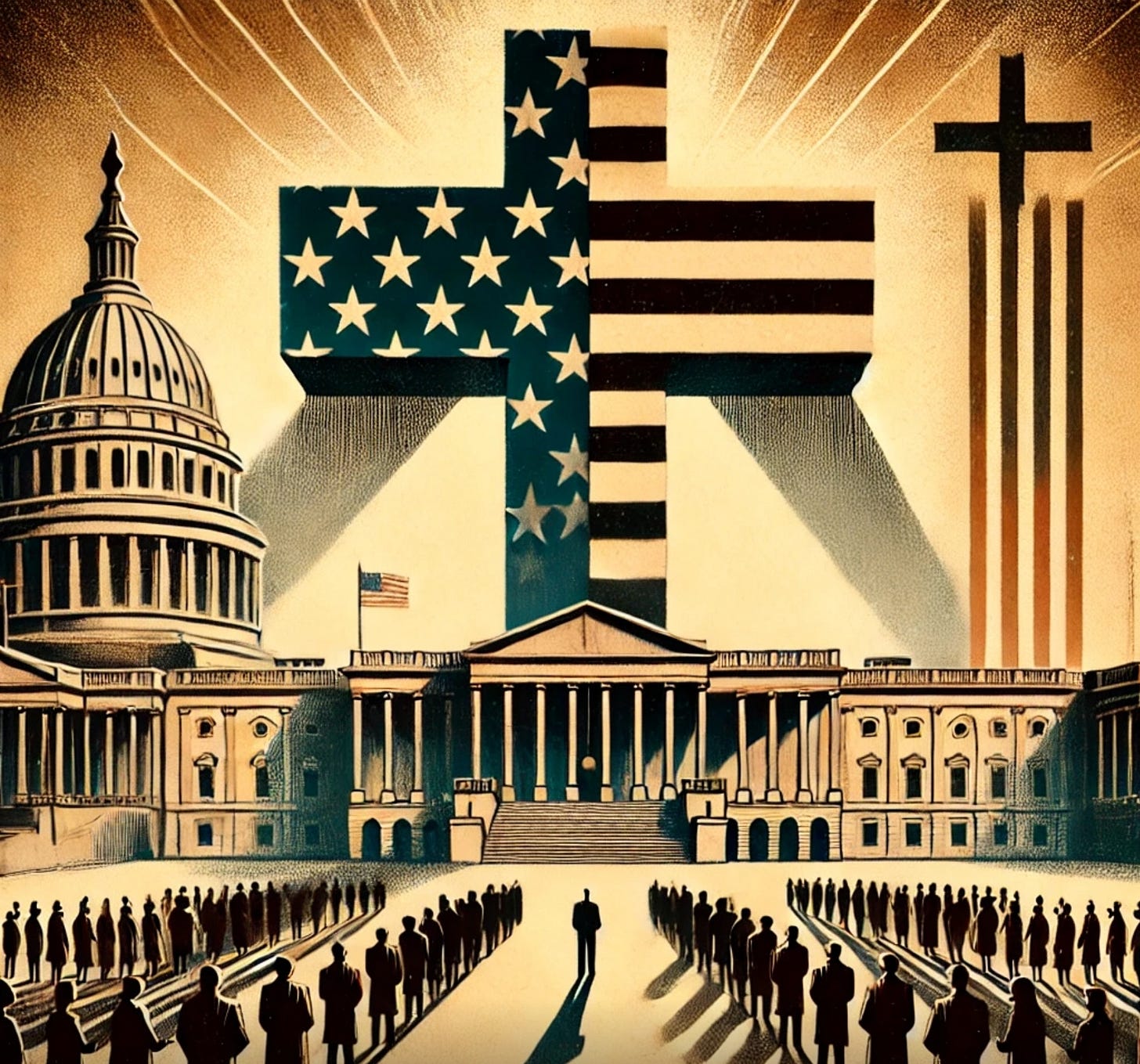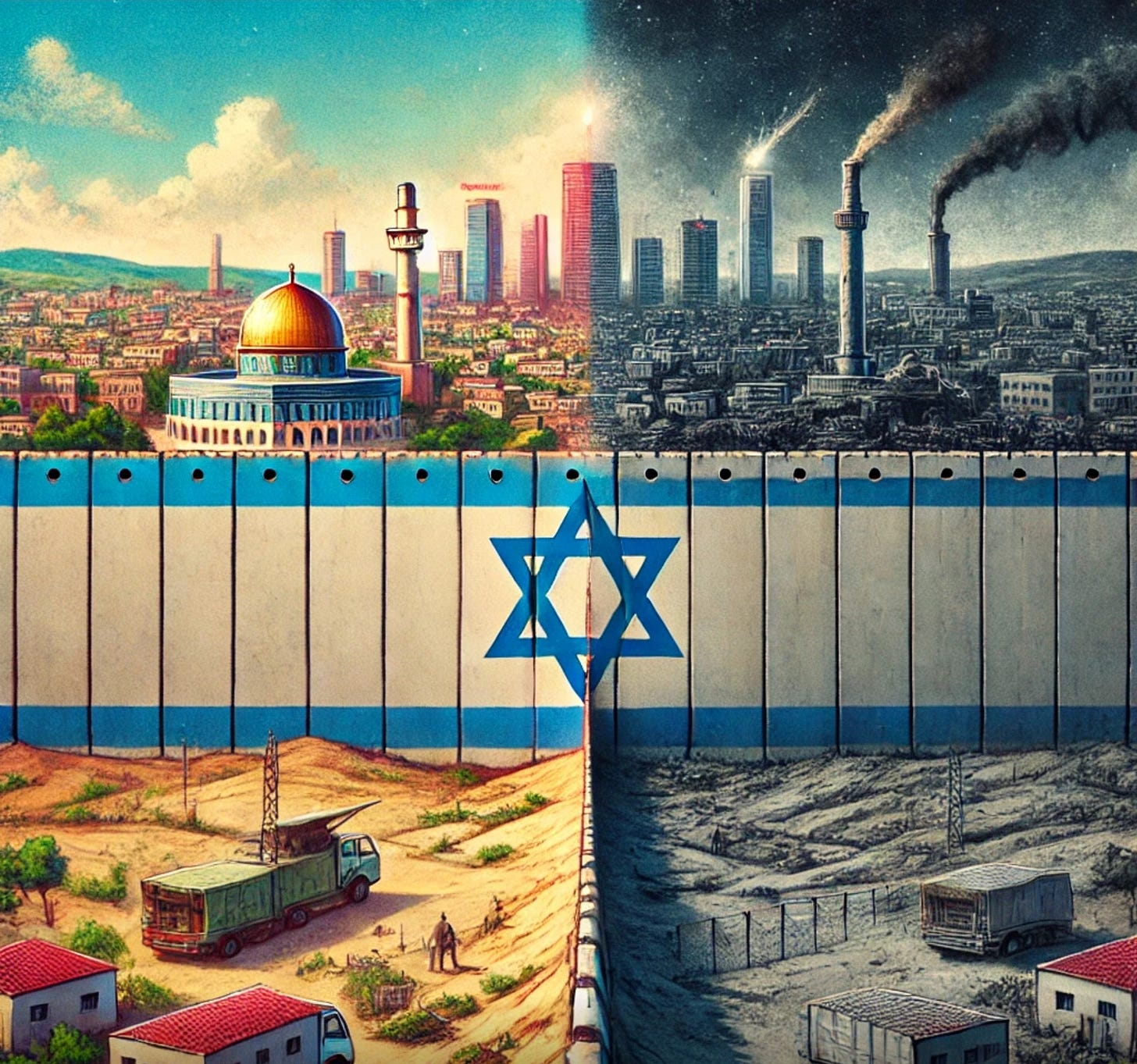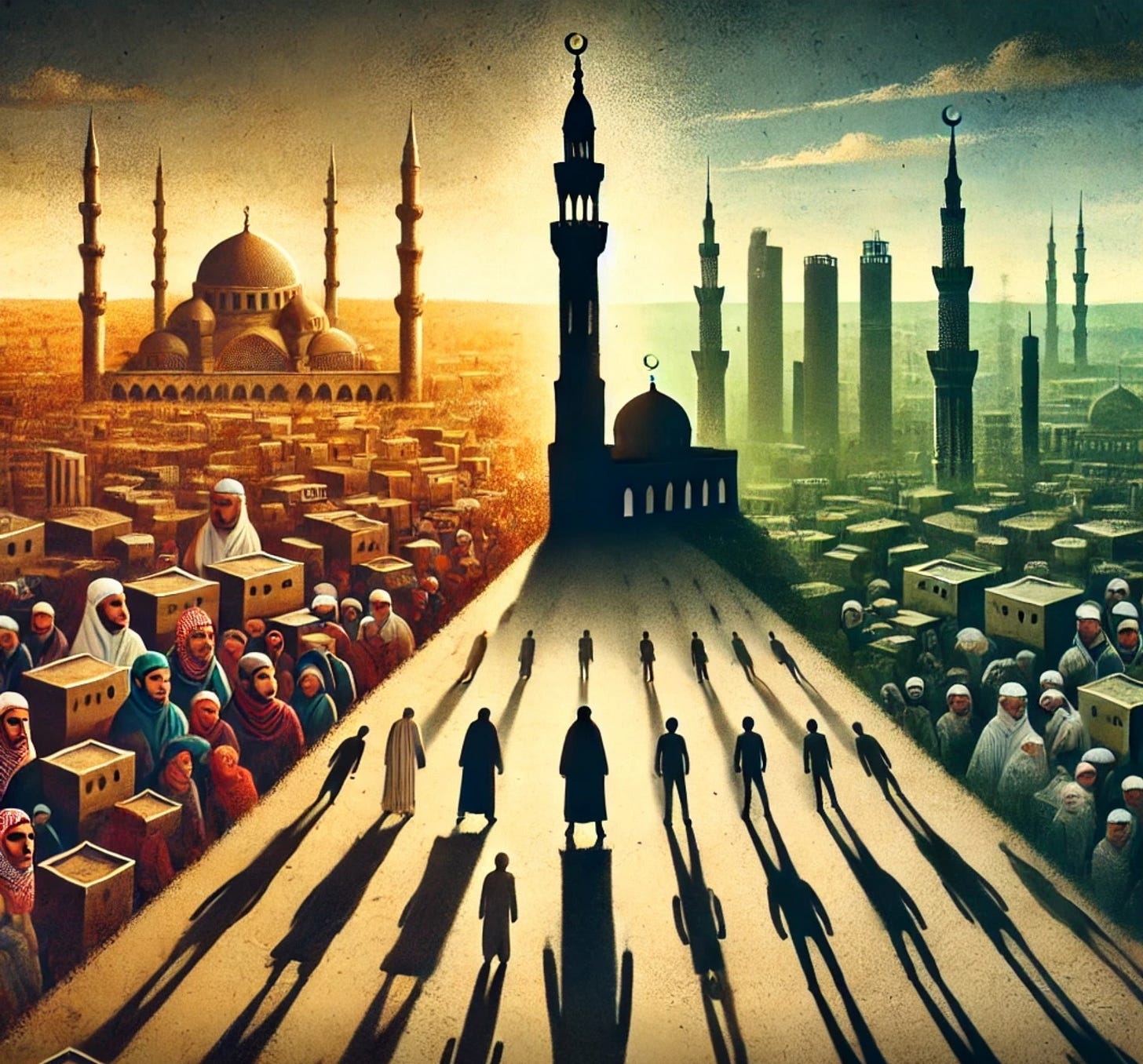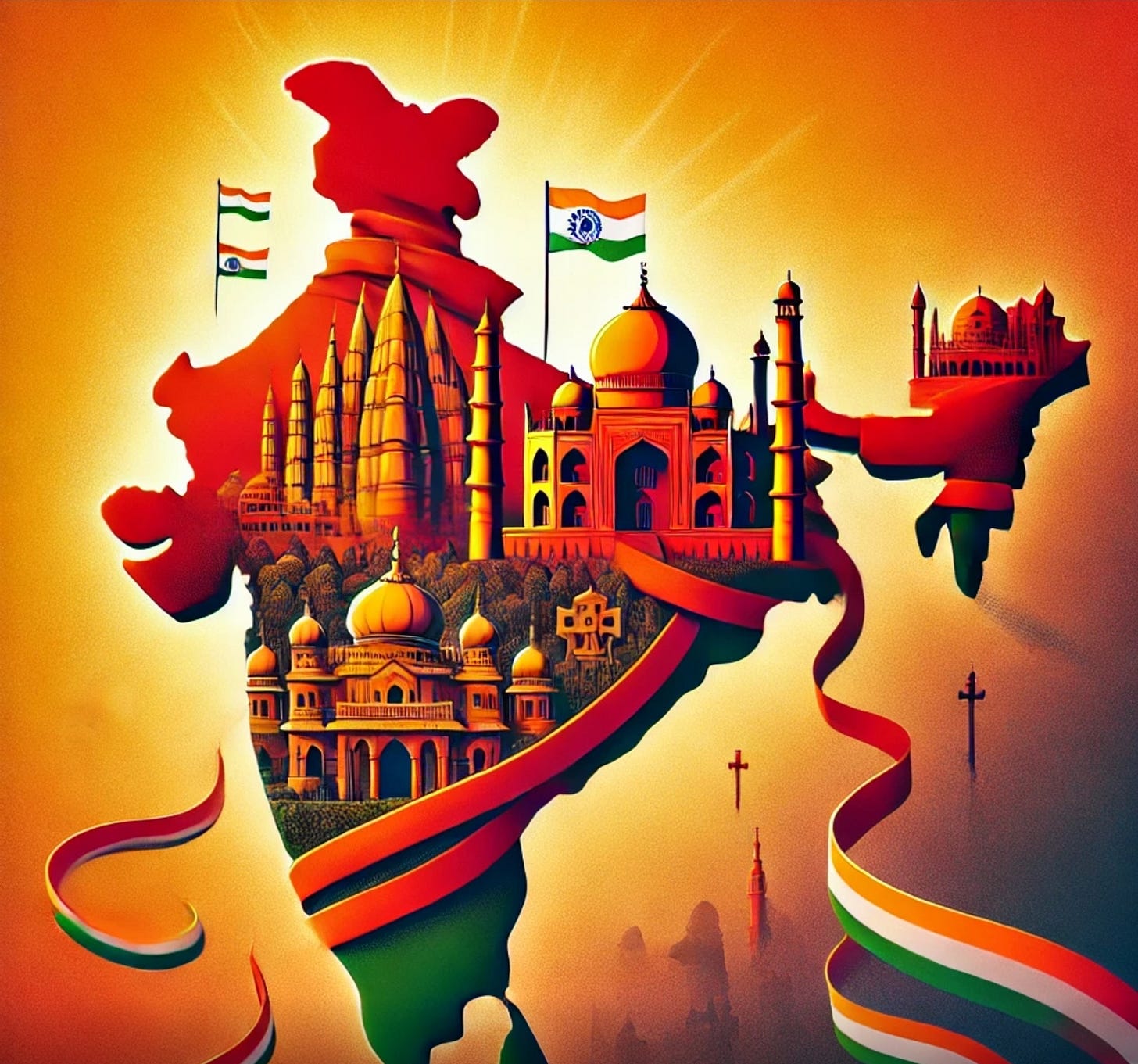White supremacy is undoubtedly a major issue, but when we step back and look at the bigger picture, there’s another, broader problem that threatens democracy and social cohesion worldwide: religious supremacy. This isn’t about one faith versus another—it’s about any religion imposing itself as the ultimate authority, controlling society, and marginalizing anyone who doesn’t conform. This trend isn’t just an American problem; it’s a global one, as seen in Christian nationalism in the U.S., Hindu nationalism in India, and examples of Jewish and Islamic supremacy in specific contexts.
By unpacking these dynamics, we’ll see how religious supremacy—regardless of the religion in question—erodes pluralism, stokes division, and undermines democracy.
Disclaimer: While I identify as an anti-theist and hold strong concerns about organized religion, I am deeply committed to respecting people's personal beliefs. I recognize that I live in a pluralistic community and society where diverse viewpoints coexist. Although I believe in the importance of expressing my anti-theist positions, I also understand that good people can disagree. I appreciate the values that many religious individuals live by and the effort to adhere to a moral code or philosophy. My critique of religion is not an indictment of individuals but rather an engagement with ideas, always with the aim of fostering mutual understanding and respect.
Religious Supremacy: A Global Issue
Religious supremacy is the belief that one religion should dominate political, cultural, and social institutions, often marginalizing others. Unlike racial supremacy, which targets people based on immutable characteristics, religious supremacy dictates how people should live, behave, and believe.
Religious supremacy is not confined to the Western world. In India, the rise of Hindu nationalism under Prime Minister Narendra Modi has led to the marginalization of Muslim and Christian minorities. Policies promoting Hindu identity, such as the controversial Citizenship Amendment Act, have fueled sectarian violence and undermined the nation’s secular constitution. Similarly, in Myanmar, Buddhist supremacy has justified the ethnic cleansing of Rohingya Muslims, demonstrating how religious ideology can drive atrocities even when divorced from racial considerations.
Let’s explore how different forms of religious supremacy manifest and the problems they create.
Christian Supremacy: Dominance in the West
In the United States, Christian nationalism is one of the most visible examples of religious supremacy. Advocates argue that America was founded as a Christian nation, using this claim to justify policies that restrict abortion, LGBTQ+ rights, and even how history is taught in schools. The blending of religion and politics undermines the separation of church and state, a cornerstone of American democracy.
In Europe, far-right parties often use Christianity to justify anti-immigrant policies. For example, Hungary’s Prime Minister Viktor Orbán positions himself as a defender of “Christian Europe,” using this rhetoric to crack down on Muslim immigrants and LGBTQ+ communities. These movements may look like they’re about race, but they’re fundamentally about enforcing religious conformity.
Jewish Supremacy: Issues in Israel and Beyond
Religious supremacy isn’t exclusive to Christianity. In Israel, the concept of Jewish supremacy plays a significant role in the Israeli-Palestinian conflict. Policies that prioritize Jewish identity—such as settlement expansions, restrictions on Palestinian movement, and debates over the “Jewish Nation-State Law”—create a system where one group holds power over another. Critics argue that these actions are less about race or ethnicity and more about enforcing a religious and national identity at the expense of others.
While Israel has every right to exist and protect its citizens, when religious identity becomes the justification for exclusionary policies, it creates tension, both internally and with the global community. This form of supremacy mirrors the dangers of other religious movements that prioritize one faith or identity over inclusivity and coexistence.
Islamic Supremacy: Theocratic Rule and Extremism
Islamic supremacy manifests in both state policies and extremist movements. The Iranian Revolution of 1979 is a prime example of how a theocratic government can dismantle pluralism. Under Ayatollah Khomeini’s leadership, Iran shifted from a secular monarchy to a Shia theocracy, enforcing strict religious laws that marginalized women, religious minorities, and dissenters.
In other parts of the world, extremist groups like ISIS and the Taliban have used Islam as a tool for imposing brutal regimes. These groups are not representative of Islam as a whole but demonstrate how religious supremacy can fuel violence and authoritarianism. Even in more moderate cases, countries like Saudi Arabia enforce strict Islamic laws that limit personal freedoms and institutionalize inequality.
The Common Thread
Whether it’s Christian nationalism, Jewish supremacy, or Islamic theocracy, the core issue is the same: the belief that one religion should dominate all others. This kind of supremacy is deeply dangerous because it doesn’t just target individuals—it tries to reshape entire societies. It’s also incredibly divisive, setting up an “us versus them” dynamic that fuels conflict and alienation.
Why Religious Supremacy Is More Dangerous Than Racial Supremacy
Religious supremacy is often harder to challenge than racial supremacy because it’s cloaked in moral or divine authority. People may hesitate to criticize religious policies out of fear of offending believers or being labeled intolerant. But when religion crosses the line into controlling governance, education, and personal freedoms, it becomes an authoritarian force.
Unlike racial supremacy, which targets specific groups, religious supremacy can unite people across racial and ethnic lines, making it even more pervasive. A movement based on shared faith rather than physical traits can bring together diverse coalitions, amplifying its power and reach.
What We Can Do
To push back against religious supremacy, we need to reaffirm the importance of secularism and pluralism. This doesn’t mean opposing religion itself; it means ensuring that no single religion controls laws, policies, or cultural norms.
Strengthen Secular Institutions: Governments must maintain a clear separation between religion and state, ensuring that laws are based on universal human rights rather than religious doctrine.
Promote Interfaith Dialogue: Encouraging conversations between religious communities can build mutual respect and understanding, countering the “us versus them” mentality.
Educate for Tolerance: Schools should teach about the importance of diversity and the dangers of religious extremism, equipping students to think critically about these issues.
Hold Leaders Accountable: Whether it’s a far-right politician in Europe or a theocratic regime in the Middle East, leaders who use religion to marginalize others must face international scrutiny and consequences.
Religious supremacy, whether Christian, Jewish, Islamic, or any other form, is one of the most significant threats to democracy and social harmony. It goes beyond targeting individuals to reshape entire societies, undermining freedom, equality, and pluralism. By recognizing the patterns of religious supremacy and addressing its root causes, we can protect the values that make diverse, inclusive societies possible.
The future of democracy depends on our ability to resist not just racial supremacy but all forms of ideological domination. Religious supremacy is no exception, and it’s time we treated it with the seriousness it demands.




